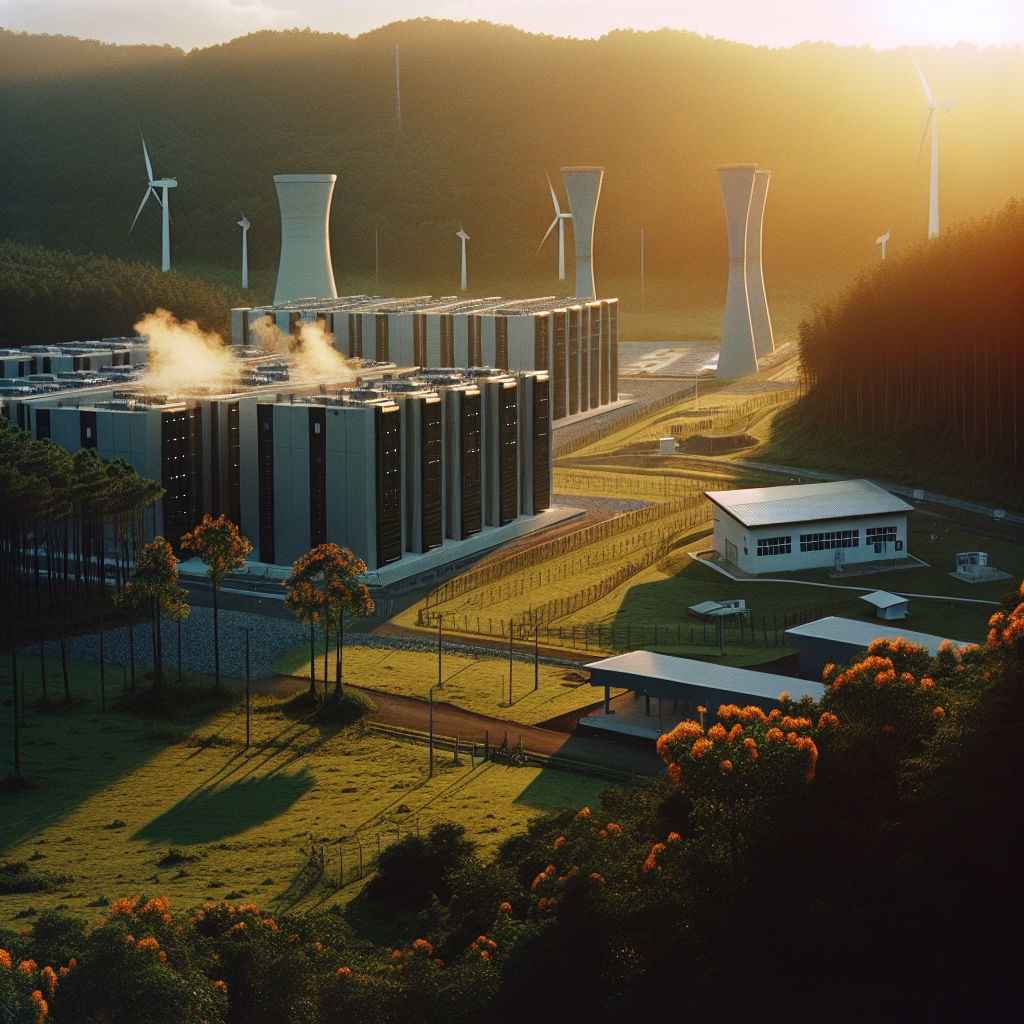Discover how Meta’s pioneering shift towards nuclear energy underscores a growing trend among tech giants focusing on sustainable solutions for AI’s energy demands.
In the electrifying world of artificial intelligence, energy consumption is a looming shadow. With AI models consuming unprecedented amounts of power, Meta has taken a bold step forward by planning to incorporate nuclear energy into its infrastructure. Targeting an additional 1-4 gigawatts by the early 2030s, Meta’s strategy not only addresses the immediate energy needs but also aligns with long-term sustainability goals. This article delves into Meta’s strategic approach, its implications for the tech industry, and how nuclear energy could redefine the power dynamics in AI development.
Meta’s Nuclear Ambitions: A New Era for AI Power
Meta’s ambitious plans to integrate nuclear energy into its data centers mark a significant shift in how tech giants are addressing the energy demands of artificial intelligence. With an eye on the future, Meta has released a request for proposals from nuclear energy developers, aiming to add between one and four gigawatts of nuclear energy capacity in the U.S. by the early 2030s. This move is not just about meeting energy needs; it’s about pioneering a new path for sustainable tech infrastructure.
The initiative stems from Meta’s extensive experience with renewable energy projects, where early engagement with developers enabled tailored solutions that met both environmental and operational objectives. Now, Meta is poised to apply this knowledge to the nuclear sector, emphasizing creative partnerships that can overcome the complex regulatory and capital requirements inherent in nuclear projects. As stated on the Meta Sustainability Blog, “We want to work creatively with developers to structure an agreement that will similarly enable development of nuclear technology.”
This strategy reflects a broader understanding of the energy landscape, where traditional sources are increasingly unsustainable. By setting its sights on nuclear energy, Meta is not just responding to current challenges but is also paving the way for a future where AI and sustainability coexist harmoniously.
The Broader Trend: Tech Giants Embrace Nuclear Energy
Meta’s nuclear endeavors are part of a larger narrative unfolding across the tech industry. Other major players, such as Google, are also turning to nuclear power to fuel their AI ambitions. Google’s recent announcement to build multiple reactors in the U.S., aiming for 500 megawatts from small modular reactors (SMRs), underscores the growing acceptance of nuclear energy as a viable solution for tech infrastructure.
The shift towards nuclear power is driven by the insatiable energy demands of AI technologies, which are outpacing the capabilities of traditional renewable sources. As reported by Engadget, “Meta isn’t the only major tech company looking to nuclear power to help power its AI ambitions.” This trend highlights a pivotal moment in the energy transition, where nuclear power’s reliability and low carbon footprint make it an attractive option for tech companies committed to sustainable growth.
As these companies forge ahead, they are reshaping the energy strategies that have long defined the tech industry, setting new standards for innovation and environmental responsibility. This shift not only addresses the immediate power needs but also contributes to the broader goal of reducing carbon emissions, making a significant impact on global sustainability efforts.
Balancing AI’s Energy Needs with Sustainability
The energy demands of AI are staggering. As AI models grow more complex and pervasive, their power consumption increases, posing significant sustainability challenges. Nuclear energy presents a compelling solution, offering a reliable and low-emission power source capable of meeting these growing demands.
According to a Business Insider report, “AI models consume tons of energy and increase greenhouse gas emissions. Tech firms and governments say an energy revolution must happen to match the pace of AI development.” This revolution is increasingly centered around nuclear energy, which provides a consistent power output, crucial for the uninterrupted operation of AI systems.
Nuclear energy’s potential to balance AI’s power needs with sustainability goals is significant. By offering a stable energy supply with minimal environmental impact, nuclear power can support the efficient functioning of AI technologies while aligning with global efforts to curb greenhouse gas emissions. This balance is essential for the future of AI, where operational efficiency must go hand in hand with environmental responsibility.
Impact & Implications: Redefining the AI Landscape
Meta’s strategic shift towards nuclear energy represents a transformative moment in the AI landscape. By leading the charge in adopting nuclear power, Meta and other tech giants are redefining how energy is sourced and utilized in AI development. This shift has the potential to set new industry standards, encouraging other companies to explore sustainable energy solutions.
The implications extend beyond the tech industry, influencing policy decisions and energy strategies on a global scale. As nuclear energy becomes a cornerstone of tech infrastructure, it could drive advancements in reactor technology and regulatory frameworks, making nuclear power more accessible and efficient.
However, challenges remain. The regulatory landscape for nuclear energy is complex, and the capital investment required is substantial. Tech companies must navigate these hurdles carefully to realize the full potential of nuclear power. Future developments in nuclear technology and policy will be crucial in determining the success of these initiatives.
In summary, Meta’s move towards nuclear energy is a significant step forward in the quest for sustainable AI development. By prioritizing nuclear power, Meta is not only addressing its energy needs but also contributing to a broader shift towards environmentally responsible innovation. As this trend continues, the tech industry will play a pivotal role in shaping a sustainable future.
“We want to work creatively with developers to structure an agreement that will similarly enable development of nuclear technology.” – Meta Sustainability Blog
“Meta isn’t the only major tech company looking to nuclear power to help power its AI ambitions.” – Engadget
- Meta targets 1-4 GW of nuclear capacity by the early 2030s. [Meta Sustainability Blog]
- Google’s commitment to 500 MW from SMRs. [Engadget]

